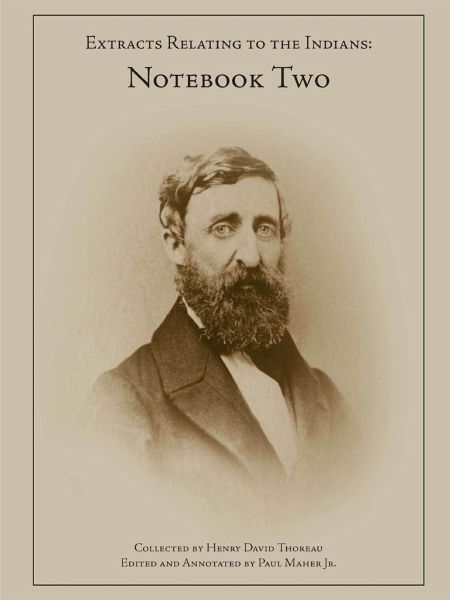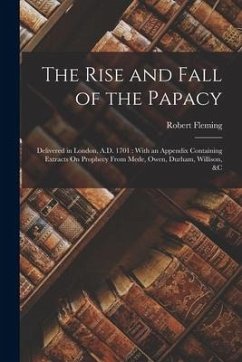
Extracts Relating to the Indians - Notebook 2
Versandkostenfrei!
Versandfertig in 1-2 Wochen
19,99 €
inkl. MwSt.

PAYBACK Punkte
10 °P sammeln!
For the first time, Henry David Thoreau's unpublished Indian notebooks will be available. This, the second in a series of eleven notebooks, will comprise a complete set of Thoreau's collected extracts from his extensive reading of North America's cultural anthropology. "Everywhere in our corn and grain fields the earth is strewn with the relics of a race, which has vanished as completely as if trodden in with the earth- When I meditate on the destiny of this prosperous branch of the Saxon family, and the exhausted energies of this new country-I forget that what is now Concord was once Musketaq...
For the first time, Henry David Thoreau's unpublished Indian notebooks will be available. This, the second in a series of eleven notebooks, will comprise a complete set of Thoreau's collected extracts from his extensive reading of North America's cultural anthropology. "Everywhere in our corn and grain fields the earth is strewn with the relics of a race, which has vanished as completely as if trodden in with the earth- When I meditate on the destiny of this prosperous branch of the Saxon family, and the exhausted energies of this new country-I forget that what is now Concord was once Musketaquid, And that the American race has had its history- The future reader of history will associate his generation with the red man in his thoughts, and give it credit for some sympathy with that race." Henry David Thoreau Journal, Fall 1842












